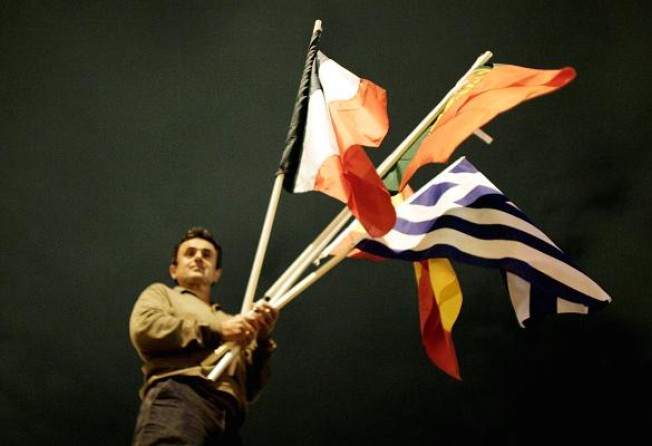Can Spain and Ireland afford not to have a government?
While a European Central Bank working paper criticises Spain for failing to continue structural reforms, investors are beginning to worry the lack of government in Ireland will impact the business community

Spain and Ireland are two countries in the euro zone that have gone months without a government and the absence of an elected leader, raising concerns that they might not be ready for further economic shocks.
Spain has been without a government since 21 December 2015, after the general election failed to produce an overall majority for any of the country's main political parties. Fresh elections are set to be conducted next week to give the voters another chance to elect a new leader.
It has been 122 days for Spain, while for Ireland it has only been 55 days.
Both Ireland and Spain have been warned by various economists on the impact this could have on their economy. Recently, an ECB working paper criticised Spain for failing to continue structural reforms. The paper highlighted that debt-to-gross domestic product (GDP) ratio still remained a burden on the economy and failure to secure a government has undone fiscal adjustments and progress made in recent years.
"The needed progress on fiscal consolidation has come to a halt, with part of the structural adjustment implemented in earlier years being reversed," the ECB said in a statement.
The ECB further added that in 2015, most of Spain's regions, along with its social security sector, fell significantly short of meeting their domestic fiscal targets. Windfall gains stemming from dynamic growth and a low interest rate environment have not been used to accelerate the deficit reduction. As a result, the deficit target of 4.2 per cent has been missed by a large margin, the ECB said.
Ireland, meanwhile, is in a better state economically as it struggles to find a new government. The country has a tentative government while they elect a new one. Ireland joined the list of countries with no elected governments in February this year after angry votes ousted the coalition government over distribution of profits of accelerating economic growth. The country's economy grew at 7.8 per cent in 2015, with official data confirming Ireland as the fastest-growing EU economy.
But the lack of a government in place has started to concern investors who think this might impact the business community in Ireland.
"We don't have a government at the moment but we are still a very functioning system," says Danny McCoy, CEO of IBEC. "The government stays in place till they can find a new administration. For business there is some uncertainty but it is not really having an impact."
On debt-to-GDP ratios, McCoy did not seem worried. The country's debt-to-GDP ratio currently stands much above the 90 percent mark but McCoy says with such strong economic momentum, this is expected to go down to 80 percent within the next 12 months.
He however warns that the country needs to move to a new phase now and that is of investment.
"This is where the fiscal rules at the European level are really beginning to bind. They are binding countries like Ireland with increasing population but not seeing the capacity there to invest since we are getting caught up on fiscal levels," he says, adding that there is need to make rules more flexible to ensure that investment, which is needed right across Europe, isn't counted as part of normal ongoing rules.
However, Spain and Ireland have a long way to go before they can beat the record for no government. Belgium and Iraq's record of 589 days and 249 days respectively will take some beating. Belgium was without a government between 2010 and 2011, while for Iraq it was in the year 2010.